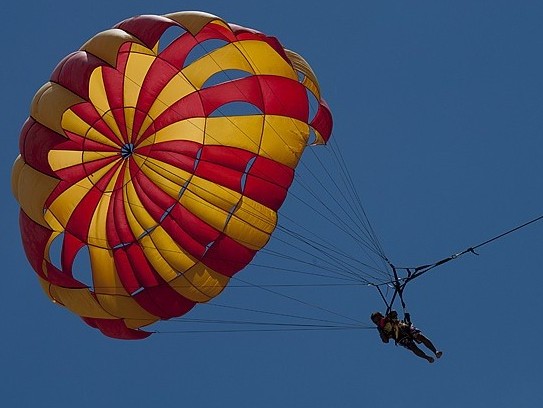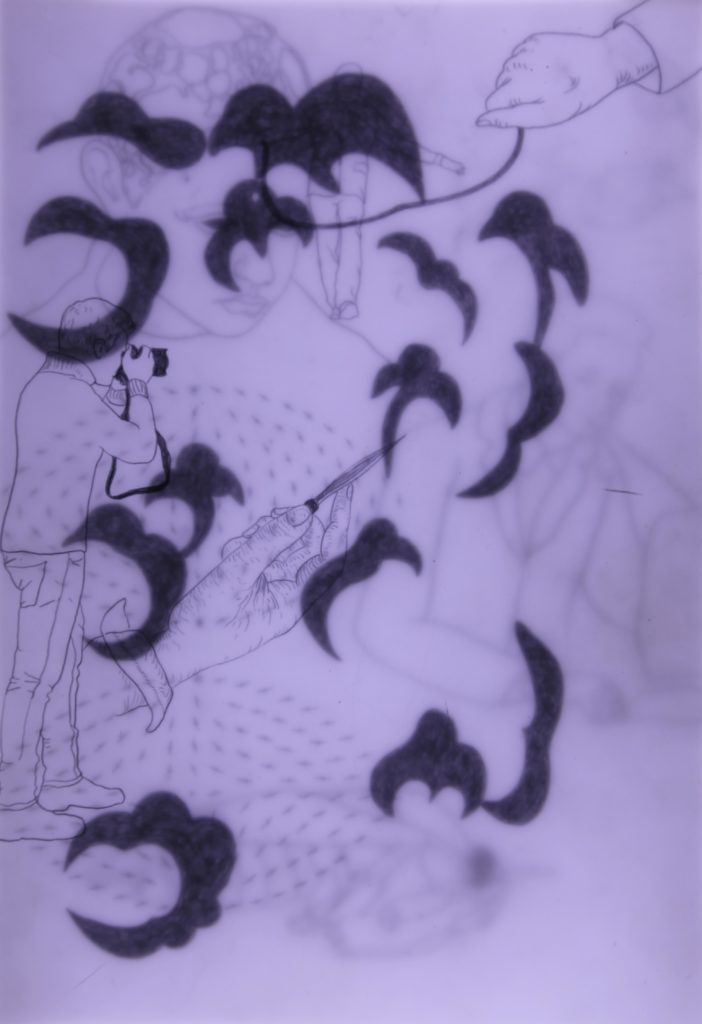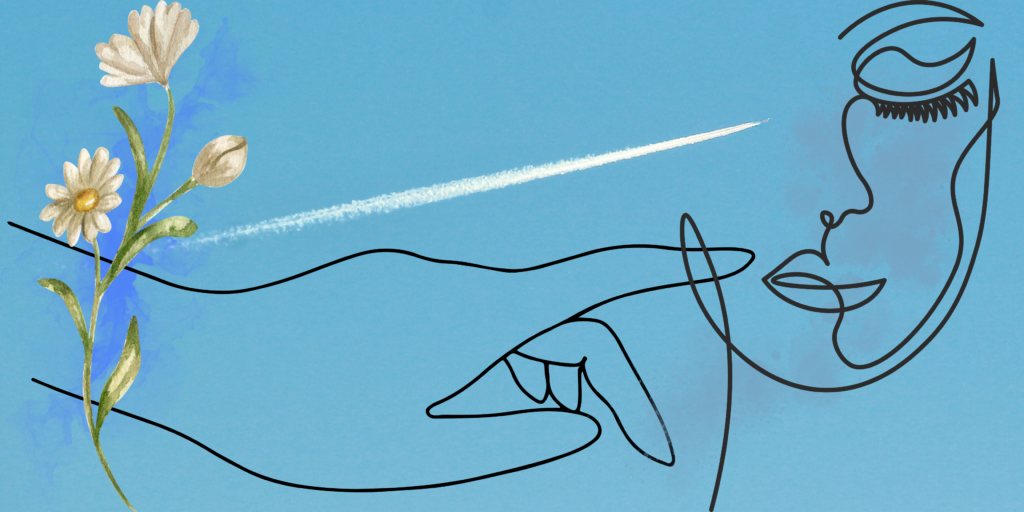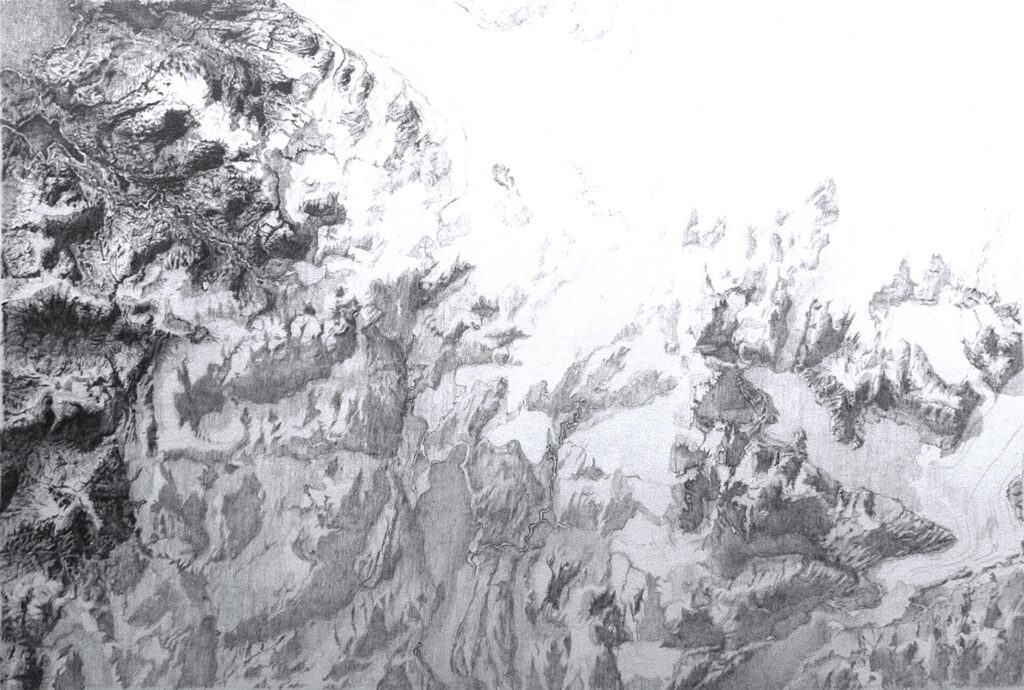If vacation represents the absence of stress and consequential decision making, then isn’t an overmanaged tour just the thing?

August 19, 2012
I am on a tour bus in Bali with 21 eager Taiwanese tourists, and we’re about to have some serious beachside fun. Our Indonesian tour guide, Jonson, who is 35 but looks ten years younger, is spelling out the day’s events for the millionth time. (Note: We are all speaking Mandarin or Taiwanese.)
“Today, we will walk under water…literally…well of course it’s safe, come on.” No one is listening. “And after that, we snorkel, and maybe have a turn on the jet ski, huh? There is mahjong and karaoke for those who don’t want to do anything too thrilling, huh?” Jonson has a way of ending all his sentences in a guttural “huh” (the Chinese equivalent of “right?”). It makes all of his statements sound somehow refutable. “Oh, and each activity will take about ten minutes,” he adds quickly. He pauses, as if to test our response. This is new information, but the bus has absorbed it without comment—some even feel relieved. “Less time in the sun, how nice,” says Vicky, a particularly pale woman whose complexion is actually see-through. This seaside excursion at Tanjung Benoa Beach, with its supposed merry-go-round of activities, is going to last an hour, tops. I’m confused. How does one snorkel for 10 minutes?
Count on Asians to work efficiency down to a science, even when it comes to vacationing. Our tour group is quick to get off the bus, and before you know it, we have donned our red snorkel shirts and are piling into a glass-bottomed boat that will take us to a bigger boat, where the real underwater activities will commence. Oh—this again! I am filled with dread.
—
From the glass bottom of our boat, there’s nothing but water, which looks milky blue and semi-opaque, the hue of an expensive alcoholic drink. The “reef”—if there is one—is occupied, so we wait. Beyond, boats and jet skis zigzag dangerously close to other boats, jet skiers. There are futuristic fishing schooners with complicated masts, and serious, industrial-looking vessels out further, dredging up dirt, probably doing irreparable environmental damage for the sake of us tourists.
Despite Taiwan also being an island, we really aren’t a water-going people. Jialing, a normally ebullient makeup artist and mother of two, looks absolutely terrified.
“I can’t swim,” she fidgets. “I always sink. I choke on water. But my husband says it’s important to try everything once.”
Another woman from our group tries to console her, though she looks a bit sea sick herself. “Look at how many people do this every day—they wouldn’t be doing it if it were dangerous.”
On the other side of the boat, Vicky’s husband is green and sweating. Is he okay? He denies feeling sick. Does he want water? Does he want to eat some of this bread that is supposed to be for feeding the fish?
We wait. When the other group reemerges, I push to the front of the line. The instructors lift a heavy astronaut-like helmet onto my shoulders and the weight takes me to the bottom. Underwater, I see why the water appears so murky—it turns out that so much bread has been crumpled up to attract fish that the water basically has the consistency of breakfast. It’s all carbs and salt. Because of the bread-induced murkiness, the powerful undersea current, and the nonexistent aquatic skills possessed by my group, the instructors decide it’s best to ring us in with rope and wood stakes. Penned in, I feel like seafood.
With nothing to look at or focus on except the chunks of bread floating around in the water and the dull ache in my ears, I wonder whether this feeling of being trapped is what vacation is all about. If vacation represents the absence of stress and consequential decision making, then isn’t an overmanaged tour just the thing?
We finally get to resurface. Vicky and Jialing still have the powder on their faces, their eyebrows penciled in. From the neck down, the red shirts hang heavily off their bodies, and they have that sad, resigned expression of wet cats. But they will not take off their red shirts, and they will not stand in the sun to warm up. Jialing is so cold she has put on a life vest and is using it as a sweater, while Vicky and her daughter huddle close together on a wet bench, damp hair matted on foreheads, lips blue. I gesture pleadingly to the other side of the boat, where the boat crew is happily sunning, completely unbothered by this tableau of unhappy female passengers. Maybe the crew is used to this, or knows that it’s useless to try to convince a Taiwanese woman to stand in the sun, even if it means death by pneumonia. “We can’t get dark!” Vicky clatters. Meanwhile, Vicky’s husband, Jerry, having already emptied most of what he ate at hot pot yesterday, is looking intensely into the water, perhaps having a private tête-à-tête with his reflection until I see that he is actually staring at the small fish that have risen to the surface to nibble on choice bits of his vomit.
—
Back on shore, we are given some options as to what to do next. There is every kind of oceangoing contraption designed to thrill, but with this crowd, they seem more like torture devices. A group of tourists whiz by on an inflated banana. (This ride has been dubbed, uncreatively, “the Banana Ride.”) There’s the “Rolling Donut” which looks like a giant frying pan tied to a sadistic jet skier that tows the thing around in gut-wrenching figure eights. Then, there’s the “Flying Fish,” which is a kind of inflated kite. All of these side-events, though, can’t nearly compete with the main terror-inducing activity at this particular beach—parasailing.
This activity actually requires a fair amount of skill because you have to be able to maneuver a parachute several hundred feet in the air. Parasailers are given red and blue gloves that look like those oversized foam fingers you get at sports stadiums. While up in the air, the gloves are used to communicate with the staff members that are standing on shore (also wearing color-coded gloves). If the blue hand is pointed at you, then you have to yank on the string that’s on the right; if the red hand is pointed at you, yank on the left. Whenever you need to descend or quickly maneuver away from another parasailer, all you have to do is look down to see which color foam finger is being pointed up at you. The problem with this arrangement is that when people are hundreds of feet in the air, stunned into paralysis, they tend to panic. They start kicking their legs because they think this might somehow buoy them up, and even though they can clearly see that the blue #1 foam finger is being pointed at them, what ends up happening is that at every dismount a group of Indonesian men with oversized foam fingers will start shouting a mixture of English and approximate Mandarin but the guy up in the parachute won’t get it and will drift far away over to some undoubtedly hard to dismount location and be suddenly about to crash into some jetty.
Who am I kidding, the whole thing is really entertaining to watch. While I am standing on the beach, I hear a woman shouting down at us.
I look up and see Jialing up there, exultant, waving her giant blue hand.



